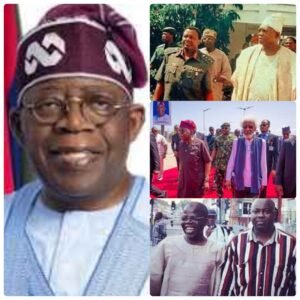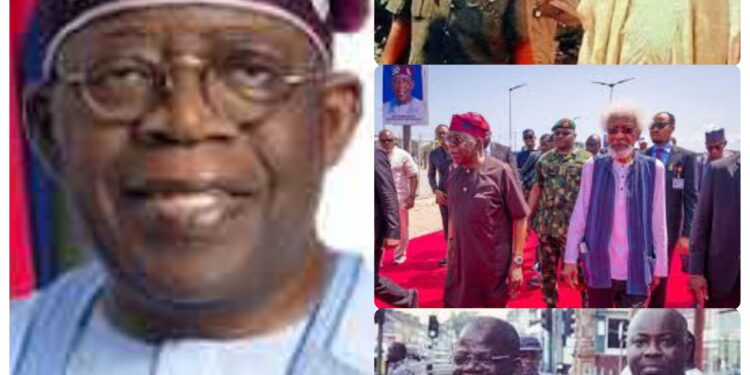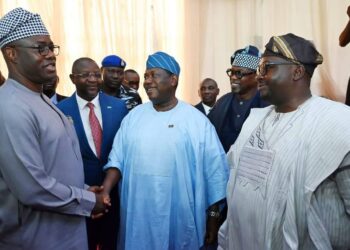
As Nigeria marks another June 12 Democracy Day, the air is thick with memories—some painful, others hopeful. But above all, this day stands as a tribute to the enduring courage of the men and women who risked everything for Nigeria’s return to democratic rule. Among these heroes were the revered “Big Ten”—a constellation of relentless pro-democracy advocates whose names remain etched in the nation’s conscience.
The late Chief Gani Fawehinmi, Dr. Beko Ransome-Kuti, Mr. Femi Falana, Chief Anthony Enahoro, Senator Bola Ahmed Tinubu, Prof. Wole Soyinka, General Alani Akinrinade, Dr. Frederick Fasehun, Chief Abraham Adesanya, and Chief Olisa Agbakoba—these are not just names. They are symbols of defiance against military dictatorship and champions of civil liberties. Some have passed on; some are still with us. But the legacy they fought for—democracy—must be preserved and upheld.
READ ALSO:Okoya-Thomas Joins GAC: A Victory for Women Leadership
Remarkably, one of them—Senator Bola Ahmed Tinubu—is today the President of Nigeria. This is not merely a political achievement; it is a profound historical irony and a significant opportunity. President Tinubu is not just another leader occupying Aso Rock; he is a living witness and product of the very struggle June 12 commemorates.
It is on this foundation that I write not just to celebrate but to challenge. Democracy Day must go beyond rituals of wreaths and rhetoric. It must be a moment of deep introspection, of honest national accounting. And most importantly, it must be a moment for the President himself to reflect publicly—on the struggle, the sacrifices, and the solemn promises made to the Nigerian people during those dark days of oppression.
READ ALSO:Umahi: God Should Punish Me If I Betray Tinubu
The heroes of June 12 stood for justice, free and fair elections, the rule of law, and the sanctity of the people’s will. These are not outdated ideals; they are the pillars Nigeria still needs. And they form the lens through which today’s government—especially one led by a former comrade of the struggle—must be evaluated.
On this June 12, I expect President Tinubu to not only commemorate the past but commit to its vision. He must speak to the nation—not just as a president—but as a soldier of democracy who survived the battlefield of injustice. His words must resonate with the passion of the 1990s and reflect the urgency of now. He must tell the stories of those who didn’t live to see democracy and act on behalf of those who believed it would one day lift every Nigerian.
READ ALSO:The Lagos Governorship Plot: Why Seyi Tinubu Is a 2031 Project, Not 2027
The fight for June 12 was not merely about replacing khaki with agbada. It was about building a fairer, freer Nigeria—where voices are heard, votes are counted, and lives are valued. That dream still feels distant for millions of Nigerians battling economic hardship, insecurity, and disillusionment. As a journalist, I owe it to history to say this: democracy without dignity is an insult to those who died for it.
As we hang our flags and take a day off work tomorrow, let us not forget: June 12 is not just a public holiday. It is a national oath—a reminder that freedom, once fought for, must forever be defended.
READ ALSO:The Lagos Governorship Plot (II): Ambode’s Redemption: Lagos APC’s Secret Weapon for 2027
Mr. President, this is your story too. Write this chapter with courage.
















